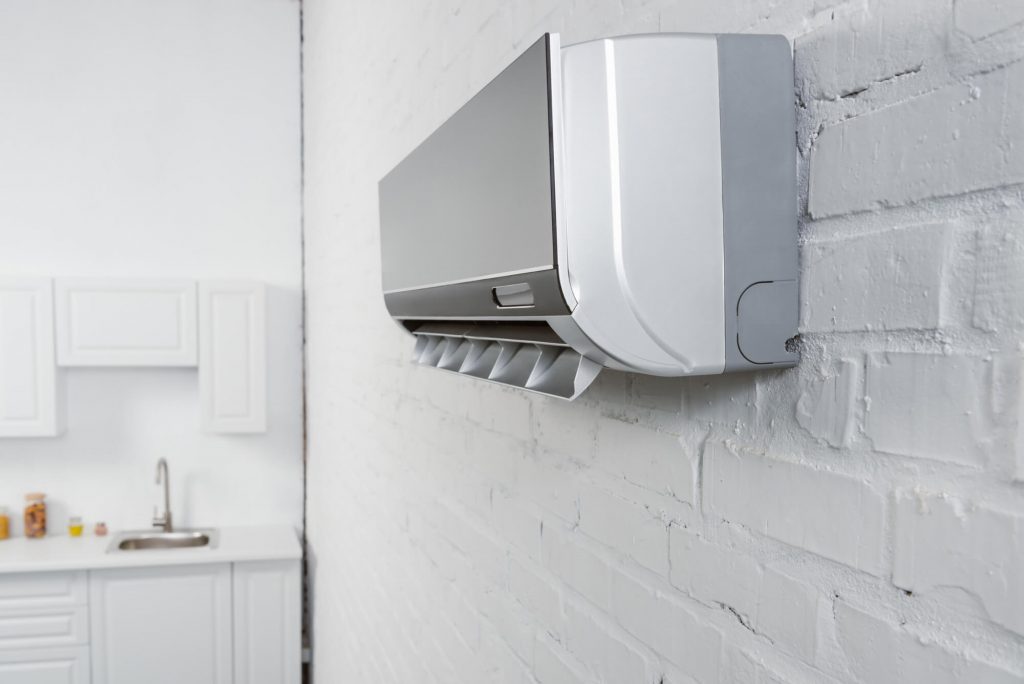
New York, Brooklyn, Bronx, Manhattan, Queens and beyond AC & HVAC disposal service.
America throws out some six million window air conditioners every year, according to the Environmental Protection Agency. If yours will be joining those ranks as the summer winds down—maybe it’s broken, maybe after all this heat you’ve resigned to moving to the Yukon before June rolls around again—you should know that tossing an AC is not as simple as hauling the unit to the curb. In fact, it’s actually illegal to smuggle your AC to a landfill with the rest of your trash.
That’s because ACs contain refrigerant, which can contribute to climate change. In older appliances, these are chlorofluorocarbons (you might know them by their nickname, CFCs). Newer units contain hydrochlorofluorocarbons or hydrofluorocarbon. Yes, all of those names sound the same—don’t worry about distinguishing between the three of them, because they’re all pretty bad for the environment. All three act as greenhouse gases if released into the atmosphere, and with the exception of the last one, will deplete the ozone layer. If your AC winds up in a landfill with the refrigerants still inside, they will leak out and go into the sky and wreak havok.
NYC Residential Air Conditioner Repair Cooling Heating Service. We do a variety of things that are kind of bad for the environment all the time—including using electricity to run ACs in the first place—so what’s so bad about taking this particular life shortcut? A lot. Refrigerants are such powerful greenhouse gases that venting the refrigerant inside a single AC unit boosts the greenhouse effect as much as driving a car over 3,000 miles, according to EPA spokesperson Melissa Harrison. Basically, carelessly throwing out an AC unit has roughly the same environmental impact as taking a road trip from Seattle to Miami. (It’s less fun, too—or at least involves fewer Spotify playlists). A few cities have municipal services that will come pick up your air conditioner. If you are in New York City, you can make an appointment with the Department of Sanitation using this online form. You’ll leave the unit curbside, and someone will come remove the CFCs on the designated day. They’ll then tag the appliance and it will be removed on the next trash day. (It’s a good idea to leave a note on the unit to indicate that it’s broken so that no one else picks it up.)
We recommend you check on your filter monthly so your system can work efficiently as possible. We service the entire state of New York but are based in Manhattan in areas like Astor Row, East Harlem, Fort George, Hamilton Heights, Harlem, Hudson Heights, Inwood, Le Petit Senegal, Manhattanville, Marble Hill, Mount Morris Park, Morningside Heights, Sugar Hill, Sylvan, Washington Heights, Carnegie Hill, Gramercy Park, Kips Bay, Lenox Hill, Murray Hill, Peter Cooper Village, Rose Hill, Stuyvesant Square, Stuyvesant Town, Sutton Place, Tudor City, Turtle Bay, Union Square, Upper East Side, Waterside Plaza, Yorkville, Chelsea, Hell’s Kitchen, Hudson Yards, Lincoln Square, Manhattan Valley, Penn South, Pomander Walk, Riverside South, Upper West Side, Columbus Circle, Diamond District, Flatiron District, Garment District, Herald Square, Koreatown, Madison Square, NoMad, Silicon Alley, Theater District, Times Square, Alphabet City, Battery Park City, Bowery, Chinatown, Civic Center, Cooperative Village, East Village, Essex Crossing, Financial District, Greenwich Village, Hudson Square, Little Australia, Little Fuzhou, Little Italy, Loisaida, Lower East Side, Meatpacking District, NoHo, Nolita, SoHo, South Street Seaport, South Village, Tribeca, Two Bridges, West Village, World Trade Center
A system that is too large will cool or heat your house quickly, but you may not feel comfortable. On the other hand, a system that is too small just wont get the job done, especially in extreme weather conditions. But a correctly sized system isn’t just based on the size of the structure. Many factors go into determining the size of the system. Including type of house and walls, type and size of windows, insulation, basement and attic conditions, house orientation, and so on.
Heating and Air Conditioning equipment, no matter what kind you have, should be inspected, cleaned, and serviced at least once a year. The best scenario is to have the heating system checked in the Fall and the air conditioning checked in the Spring. Oil-fired equipment should definitely be cleaned and serviced annually; at the beginning of each heating season.
Email
[email protected]
Phone
(718) 536-9361
